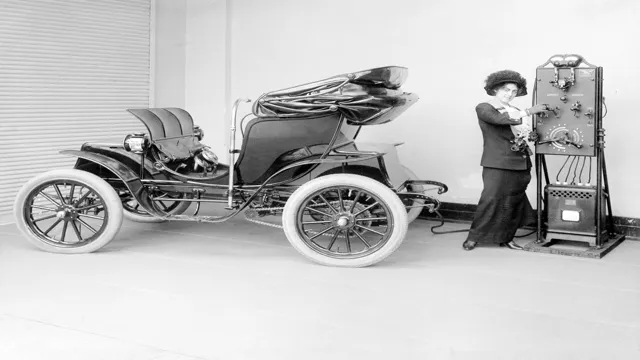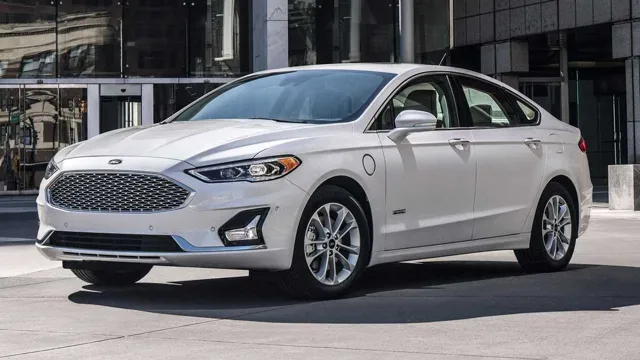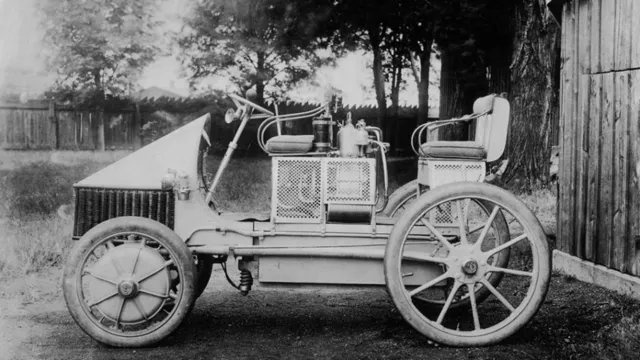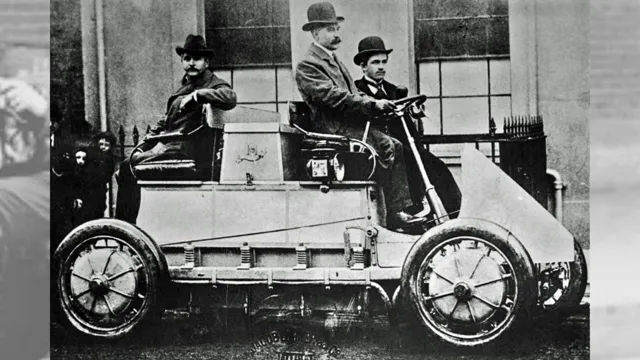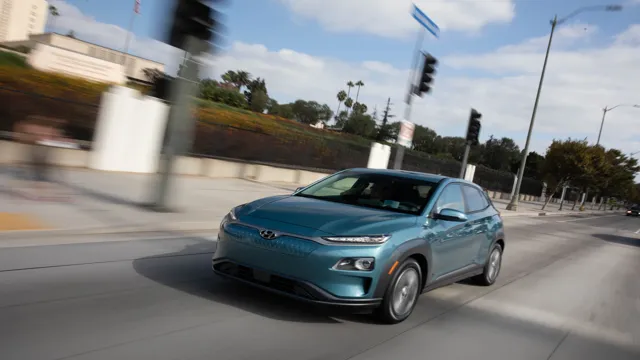Revolutionary Evolution: A Fascinating Journey Through the History of Electric Cars
Electric cars have been a topic of interest for many people across the globe. With the rise of environmental concerns and the need for sustainability, electric cars have become the go-to solution for many car manufacturers. However, did you know that the history of electric cars dates back to the early 1800s? Yes, you read it right! The roots of electric cars can be traced back to the time of the invention of electric batteries.
And ever since then, the technology and design of electric cars have come a long way. Electric cars are no longer just a concept. In the last decade, the production and sales of electric cars have skyrocketed, and the trend doesn’t seem to stop any time soon.
While it’s impossible to imagine today’s world without electric cars, it’s crucial to understand the evolution of these vehicles. That is why knowing the history of electric cars is essential. In this blog, we will take a look at the fascinating history of electric cars.
From the first self-propelled electric vehicle to the first electric vehicle speed record, we’ll explore the milestones that paved the way for the current market of electric cars. So buckle up and get ready to dive deep into the past to see how we got where we are today.
Early Development
Electric cars history dates back to the early 1800s when inventors first began experimenting with electric-powered vehicles. In fact, the first electric car was invented by Robert Anderson, a Scottish inventor, in 183 The car used non-rechargeable batteries and had limited power and speed, but it was a significant breakthrough in the history of electric cars.
In the late 1800s and early 1900s, electric cars became more popular due to advancements in battery technology and the growth of urban areas. However, the emergence of gasoline-powered cars soon overshadowed electric cars, as they were cheaper and had longer range capabilities. Despite this setback, electric car development continued and eventually led to the creation of the first successful hybrid car in the late 1990s.
This development paved the way for modern electric cars, which are becoming increasingly popular due to their sustainability and reduced carbon emissions. As the world continues to seek cleaner and greener alternatives, electric cars have once again emerged as an important part of the automotive industry.
19th Century Electric Cars
The 19th century was a time of rapid development in the field of electric cars. Early inventors like Thomas Davenport and Robert Anderson paved the way for later innovators like Thomas Parker and Ferdinand Porsche. Davenport created one of the first electric motors in the 1830s, and Anderson built the first crude electric vehicle in Scotland in 183
By the 1850s, electric carriages were being used in cities like Paris and London, and by the 1880s, electric cars were becoming popular in the United States. These early electric cars were limited in range and speed, but they were quiet, clean, and reliable. They were especially popular with women, who found them easier to operate than gasoline-powered vehicles.
Despite their advantages, electric cars struggled to compete with the cheaper and more powerful gas cars that were rapidly gaining popularity. However, the seeds of electric vehicle technology were planted in the 19th century, and they would continue to grow and develop throughout the next century.
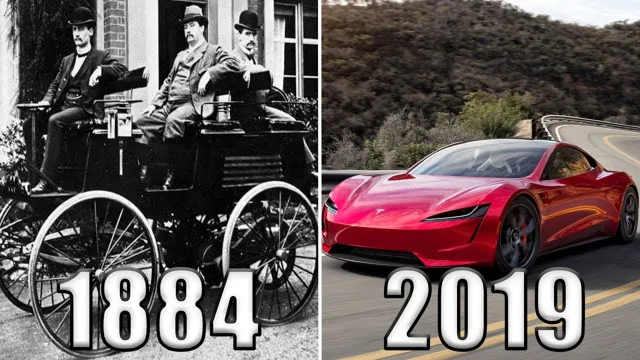
Early 20th Century: Rise and Fall
The early 20th century was a time of significant change and development in many industries, including the rise of new technologies and improvements in communication systems. This period saw the beginning of the radio industry, as Marconi first transmitted a radio signal across the Atlantic in 190 Additionally, the development of the movie industry captivated audiences worldwide, with films becoming longer and more complex in their storytelling.
The introduction of Henry Ford’s assembly line revolutionized the automotive industry, making cars more accessible and affordable for the average person. However, this period was also marked by events such as World War I and the Great Depression, which caused significant economic and political turmoil. Despite the challenges faced during this period, the early 20th century laid the groundwork for many of the technological advancements and societal changes we enjoy today.
Recent Developments
Electric cars have come a long way since their inception in the 1800s. In recent developments, there has been a surge in the production of electric cars, thanks to technological advancements and growing concerns over climate change. History shows that the first electric car was invented in the late 1800s, but it was not until the early 2000s that Tesla released its roadster and managed to make electric cars popular.
Nowadays, there are more options for those looking to go green with their car choice. Automakers like Chevrolet, Nissan, and BMW all have electric cars in their product lines. Additionally, advancements in battery technology have made electric cars more affordable and reliable.
With industry leaders like Tesla, Rivian and Lucid, paving the way for the future of electric cars, it is safe to say that these vehicles are here to stay. As people become more environmentally conscious and aware of the benefits of electric cars, we can expect to see even more growth and innovation in this industry in the years to come.
Late 20th Century: Resurgence and Advancements
In the late 20th century, the field of technology saw a significant resurgence, along with numerous advancements that revolutionized the way we live today. Among the most significant developments were the creation of the World Wide Web and the introduction of personal computers, which radically transformed the way we communicate and work. Additionally, mobile phones evolved into smartphones, and the internet became more accessible, allowing people to connect with anyone, anywhere.
The advancements in the field of medicine, transportation, and entertainment were also extraordinary, with the development of MRI machines, hybrid cars, video games, and digital cameras. All these inventions have undoubtedly made our lives more comfortable, enriched, and exciting. However, there is no doubt that the late 20th century has produced unprecedented technological advancements that have forever changed the world as we know it.
Whether this advancement will continue into the future, only time will tell.
21st Century: Electric Cars Go Mainstream
Electric Cars Electric vehicles have been around for a while, but only recently have they started to go mainstream. In the past few years, there have been some significant developments in the electric car industry, which have made them more accessible and desirable to consumers. For starters, the cost of electric cars has decreased significantly, making them more affordable for the average car buyer.
Additionally, the range of electric cars has improved dramatically, and they can go further on a single charge than ever before. Furthermore, there has been an increase in the number of charging stations across the country, making it easier for people to charge their electric cars while on the go. The combination of these factors has led to a surge in sales of electric vehicles, and it seems that we are well on our way to a future where electric cars are the norm rather than the exception.
The benefits of electric cars are many, including reduced emissions, lower fuel costs, and increased energy efficiency. As more people become aware of these advantages and the technology continues to improve, we can expect to see even more widespread adoption of electric cars in the years to come.
Current State of the Electric Car Market
The electric car market has been experiencing some exciting developments of late. The introduction of new models, such as Tesla’s Model S Plaid and Lucid Air, has given consumers more options when it comes to choosing an electric vehicle. Additionally, there have been significant advancements in battery technology, which has led to longer driving ranges and faster charging times.
This has alleviated concerns about range anxiety and made electric cars a more viable option for everyday use. Furthermore, governments across the world are offering incentives to purchase electric cars, which have helped to drive sales. With all these new developments, it’s clear that the future of the electric car market is bright.
The keyword used in this paragraph is “electric car market”.
Future of Electric Cars
The history of electric cars dates back to the mid-19th century when researchers were experimenting with building electric-powered vehicles. However, it wasn’t until the 20th century that electric cars began to gain popularity, thanks to advancements in technology and growing concerns over the environmental impacts of gasoline-powered cars. Since the 1990s, electric vehicles have undergone significant fuel economy improvements, battery technologies allowing longer driving ranges, and an increasingly efficient and robust charging network.
As we move further into the future, the future of electric cars looks bright with many manufacturers significantly increasing their production of electric vehicles, and governments across the world adopting and implementing policies promoting the use of electric cars. In the coming years, advances in battery technology will increase the driving range of electric cars, making them even more convenient and practical for daily commuting. The future is electric, and history has shown that electric cars are here to stay.
Technology and Infrastructure Advancements
Electric cars have already begun to shape the future of transportation and with advancements in technology and infrastructure, their impact is set to increase exponentially. Electric cars are being hailed as the answer to the environmental issues caused by traditional gasoline-powered vehicles. The use of electric cars reduces greenhouse gas emissions, making them a more sustainable and cleaner transportation option.
However, the biggest challenge faced by electric cars is the limitation of their battery, which limits the distance they can travel before needing a recharge. The constant demand for improved battery technology has already started to drive major advancements in this field. In the not-so-distant future, we can expect to see electric cars with longer battery life, faster charging systems, and better infrastructure to support them.
The future of electric cars looks promising, and it’s certain that they will play a significant role in shaping the way we travel for years to come.
Global Shift Towards Electric Vehicles
Electric Vehicles The global shift towards electric vehicles is rapidly turning the automotive industry on its head. With governments around the world implementing ever-stricter emissions regulations, automakers are jostling to establish themselves in this fast-changing landscape. The future of electric cars is looking increasingly bright for consumers and manufacturers alike.
The benefits of electric vehicles are numerous. They emit zero emissions, run almost silently and are, for the most part, more efficient overall than traditional internal combustion engine vehicles. As battery technology continues to improve, we’re also seeing a considerable increase in driving range, with many electric vehicles now capable of driving over 300 miles before needing a charge.
It’s an exciting time, and as more people make the switch to electric vehicles, the impact on the environment will be immense. It’s not just about reducing our carbon footprint; electric vehicles offer a more sustainable solution for our planet’s future.
Conclusion
In conclusion, the history of electric cars is like a roller coaster ride – full of ups and downs. From its humble beginnings in the late 19th century to its resurgence in the 21st century, electric cars have come a long way. They have faced challenges, but they have also shown remarkable resilience.
Like any good innovation, electric cars have disrupted the status quo and challenged the conventional wisdom of what a car should be. They offer a glimpse into a more sustainable future, where clean energy and technology work in harmony to create a better world. So buckle up, because the future of electric cars is going to be electrifying!”
FAQs
What is the history of electric cars?
The history of electric cars dates back to the mid-19th century when inventors began experimenting with electric-powered vehicles.
When was the first electric car invented?
The first electric car was invented in 1837 by a Scottish chemist named Robert Davidson.
Why did electric cars lose popularity in the early 20th century?
Electric cars lost popularity in the early 20th century due to the development of gasoline-powered cars, which offered greater range and convenience.
What led to the resurgence of electric cars in recent years?
The resurgence of electric cars in recent years is due to concerns about climate change and the need for more sustainable forms of transportation. Advances in technology have also made electric cars more viable for everyday use.
